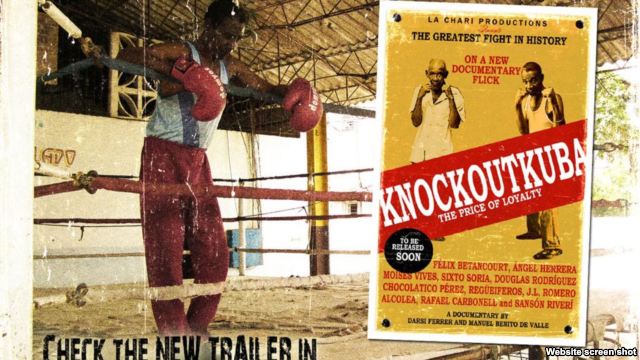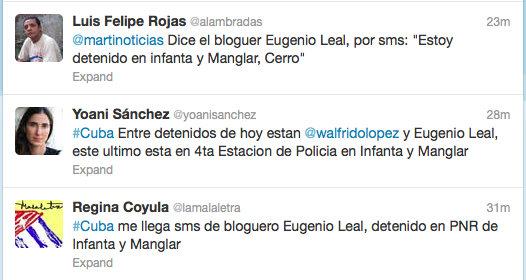
Graffiti, a term that comes from the Italian “graffio” meaning “scratch,” has existed since the dawn of humanity. We see it in the cave paintings of Lascaux, in France. Our ancestors marked the walls with bones and stones and left us their testimony. Also, in ancient Greece and the ruins of Pompey texts have appeared that revealed election slogans, drawings and the various obscenities of their inhabitants.
In Havana, in the early nineties, with the disappearance of the Soviet Union and the beginning of the economic crisis that the government called “the Special Period,” we found at various points in the city a symbol of the Abakuá fraternity. It consisted of a circle within which are two rods superimposed on a cross with arrows at both ends, which means “the roads are closed.”
At different times, other symbols and texts have gained ground in the urban environment and, systematically, government agencies have been alerted to erase, detect, apprehend, prosecute and imprison the graffiti artists. But as the system’s structural crisis became endemic, we became used to — both the repressors and repressed — the appearance, more or less ephemeral, of suggestive messages encoded in different parts of the city.
A few years ago, in Plaza along 23rd Street, an enigmatic text appeared. It was red, consisting of a vertical line with an arrow at the upper end that made an inverted letter V, and another, normal, much smaller, on the lower end. To emphasize, the reverse S was upside down. Virtually overnight the graffiti appeared on facades, walls, traffic signals, park benches, and whatever flat surface was available.
There was no need to be an expert in esotericism, the sign told us we had the change the situation of our society. Not only by the reverses word. The weight of the large V on the little one, on the lower part, indicated the instability of the system.
Recently, I met a young active graffiti artist who signs his work with “El Sexto” — the Sixth — and is designated National Graffiti Artist Vanguard. From a long time back I have seen his mark all over the city, that authenticates his self-identification. Now, in the most unexpected places, his texts and the characteristic signature line appear.
Distinguishing himself from others, who have also dabbled in the art of graffiti, he also prints flyers. And so he shatters the ancient iconography of the system of government. Among them are: “Give Back My 5 Euros,” which satirizes the alienating campaign for the 5 spies of the Wasp Network imprisoned in the United States; “With Reason Held High” in opposition to the slogan of the Committees for the Defense of the Revolution (CDRs); and “The Sixth Truth” where his image and the word Truth appear which discredits and shows the phobia occasioned by the truth. In his way, The Sixth transmits an important message: We are beginning to exercise our rights.
Please! Keep El Sexto in your sight. We will not allow the totalitarian regime to devour this young man, as they did to others when there were no modern information and communication technologies.
Part of the Dossier of El Sexto, which will appear here piece by piece.
October 2011




 On the night of June 22, in the Cotorro municipality in Havana, we celebrated the 80th anniversary of the coming of the Evangelical church to this country.
On the night of June 22, in the Cotorro municipality in Havana, we celebrated the 80th anniversary of the coming of the Evangelical church to this country.